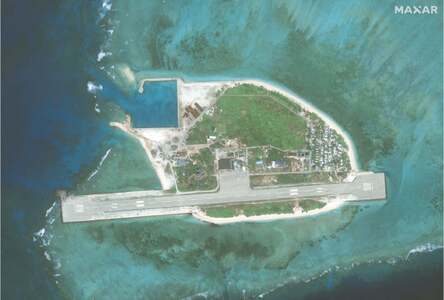MADRID: The 15th-century explorer Christopher Columbus was a Sephardic Jew from Western Europe, Spanish scientists said on Saturday, after using DNA analysis to tackle a centuries-old mystery.
Several countries have argued over the origins and the final burial place of the divisive figure who led Spanish-funded expeditions from the 1490s onward, opening the way for the European conquest of the Americas.
Many historians have questioned the traditional theory that Columbus came from Genoa, Italy. Other theories range from him being a Spanish Jew or a Greek, to Basque, Portuguese or British.
To solve the mystery researchers conducted a 22-year investigation, led by forensic expert Miguel Lorente, by testing tiny samples of remains buried in Seville Cathedral, long marked by authorities there as the last resting place of Columbus, though there had been rival claims.
They compared them with those of known relatives and descendants and their findings were announced in a documentary titled “Columbus DNA: The true origin” on Spain’s national broadcaster TVE on Saturday.
“We have DNA from Christopher Columbus, very partial, but sufficient. We have DNA from Hernando Coln, his son,” Lorente said in the programme. “And both in the Y chromosome (male) and in the mitochondrial DNA (transmitted by the mother) of Hernando there are traits compatible with Jewish origin.”
Around 300,000 Jews lived in Spain before the ‘Reyes Catolicos’, Catholic monarchs Isabella and Ferdinand, ordered Jews and Muslims to convert to the Catholic faith or leave the country. Many settled around the world. The word Sephardic comes from Sefarad, or Spain in Hebrew.
After analysing 25 possible places, Lorente said it was only possible to say Columbus was born in Western Europe. Research on Columbus’ nationality was complicated by a number of factors including the large amount of data. But “the outcome is almost absolutely reliable,” Lorente said.
Columbus died in Valladolid, Spain, in 1506, but wished to be buried on the island of Hispaniola that is today shared by the Dominican Republic and Haiti. His remains were taken there in 1542, then moved to Cuba in 1795 and then, it had been long thought in Spain, to Seville in 1898.
The Dominican Republic has long claimed that it is host to his body and a mausoleum is dedicated to him in the city of Santo Domingo, according to the BBC. In presenting this finding, Prof Lorente said that “we have been able to prove beyond all doubt, with new technology, the previously unconfirmed theory that the remains in Seville are those of Christopher Columbus”.
However, the team has said it is possible that some remains of the explorer are in the Dominican Republic, which did not co-operate with the project.
Columbus, in 1492, led an expedition backed by Spain’s Catholic Monarchs seeking to establish a new route to the Far East. Instead, he reached the Caribbean, marking the beginning of a period of European contact with the Americas which would lead to conquest and settlement — and the deaths of many millions of indigenous people due to diseases and war.
Published in Dawn, October 14th, 2024















































Dear visitor, the comments section is undergoing an overhaul and will return soon.